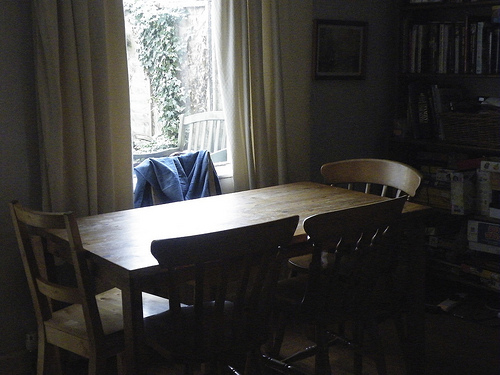Fascinating figures recently out from Ofcom. For the first time ever, despite the fact that mobile phone sales are still surging, the time we spend talking on the mobile has actually dropped. So this isn’t just the decline of the landline conversation, which has been happening for a long time. It’s the decline of conversation full-stop, even though it is cheaper and easier than ever before.
Tiffany Jenkins gives the facts:
Have you noticed how little we talk on the telephone, compared to how much we used to? That’s talk; not text. Speak; not message. I rarely pick up the land-line, or my mobile, to dial those with whom I work.
Admittedly, I occasionally call a select group of friends and family, but even these have been filtered down to leave only a few on the line.
More often than not we e-mail each other instead of speaking to one another, or we text and instant message, contacting people through social networking sites. The answerphone is redundant, quiet in the corner. The landline retained only for its internet connection.
These observations are not confined to personal experience. Figures released by Ofcom, earlier this year, showed that the volume of landline calls have gone down dramatically. Last year, they fell by 10 percent. Today, it is surprising when it rings, and when – if ever it does, you are more likely find a salesperson at the end of the line than someone you actually know.
Fixed-line voice calls have been in decline for some time, but what is significant is that there has also been a drop in mobile voice calls.
The figures published by Ofcom show they are on the wane – the overall time spent talking on mobile phones dropped by over 1 per cent in 2011, for the first time ever. My mobile constantly bleeps and buzzes at the sound of new activity, but I hear the ring tone less and less.
People are still communicating, they just don’t do it directly. Instead we are switching to texts, e-mails and online communication of various sorts.
The average UK consumer now sends 50 texts per week which has more than doubled in four years.
What does it all mean? Jenkins reflects:
Developments in technology allow us to get in touch whenever, quickly, cheaply, and apparently efficiently, but separated at a distance. It isn’t face to face, nor on an open line. Walking into a once noisy office recently, where I used to work, I found that everyone was silently typing away. They were interacting with each other – and others – but though the internet. Text based communications and the computer are acting as a chaperone […].
This connection at a distance concerns me. Why does it feel too intimate to call someone without an arrangement? What is so scary about an open line? And why do we need to be constantly in touch, but with technology coming between us, putting us at arms – or rather text – length?
And she writes about Sherry Turkle, professor of social sciences at Massachusetes Institute of Technology, who makes some pertinent points in her book Alone Together: Why We Expect More from Technology and Less from Each Other (which I haven’t yet read).
Her central point is that we are turning to technology to fill an emotional void and desire for intimacy, but that it in fact creates a new solitude. “Connectivity offers the illusion of companionship without the demands of friendship”, she says.
That we seek intimacy in technology, and not with each other, suggests that we are too fearful of real-life connections, relying on technology as a shield. We are turning away from one another, typing away in isolation, and developing virtual connections, because it feels safer than speaking in person. But we cannot make friends, or sustain relationships without commitment, without exposing our true selves.
Social media will not be truly “social” if it is a crutch that we use in place of communicating with each other in real-time. It strikes me that we should pick up the telephone and speak to one another. Go on, take a risk and give someone a call. It is good to talk.
Do you talk less than you used to? Here is a tip/experiment: Instead of checking your email or Facebook or internet news at the end of the day, try calling someone just for a ten minute catch-up. Try it for a week. See if it has made a difference…






